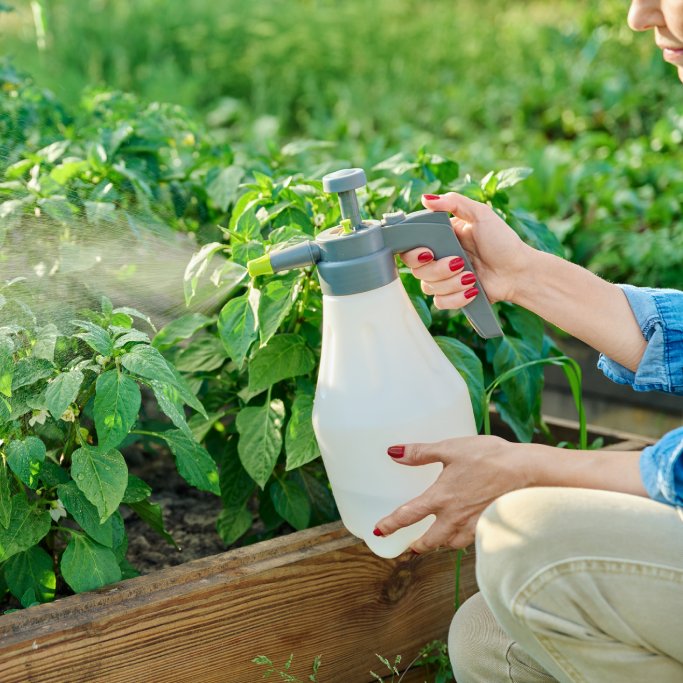Garden Pests
Identifying garden pests is sometimes difficult, as there are many, but important when it comes to pest control in your garden. However, with the right tips and facts about garden pests at your disposal, you can arm yourself with the tools you need for controlling pests before they take control of your plants. Common pests in the garden don’t need to be a cause for alarm. Simply use the following information for identifying garden pests and learn how to employ the best methods for pest control in your garden.
Explore Garden Pests
-

How To Get Rid Of Japanese Beetles On Roses: Control & Prevent This Destructive Pest
Are Japanese beetles ravaging your roses? Take swift action with our expert guide to managing infestations – plus long-term measures to prevent their return.
By Stan V. Griep
-

Do Deer Eat Peonies? How To Keep Them Away And Save Your Gorgeous Blooms
Peonies are not usually favored by deer, but sometimes they go after the young shoots of the plants anyways. Learn how to keep deer away from beautiful blooms.
By Mary Ellen Ellis
-

10 Beneficial Insects You Should Invite Into Your Garden – To Prevent Pests & Help Plants
Roll out your garden’s welcome mat for 10 of the most beneficial insects and bugs. They are expert pollinators and some even provide pest control.
By Bonnie L. Grant
-

Spider Mites: What Are They And How To Get Rid Of Them
Spider mites are a common pest of plants and cause damage by sucking plant juices from the leaves. They can be controlled with natural and chemical means.
By Susan Albert
-

What Is Groundhog Day? Why We Celebrate A Furry Garden Pest
What is Groundhog Day and why do we continue to honor this tradition every February? Maybe because it’s a great reason for a celebration!
By Susan Albert
-

What Plants Do Snakes Hate: Using Snake Repelling Plants For Gardens
By Bonnie L. Grant
-

What Are Neonicotinoids? And Why You Should Keep Them Out Of Your Garden
Neonics are effective systemic pesticides, but they harm pollinators as much as pests. Learn more about neonicotinoids and how to keep bees safe while maintaining your garden.
By Teo Spengler
-

Climate Change And Pests: Do Warmer Winters Mean More Pests?
Warmer climates can result in an increase of some pests and decrease of others, which isn’t always a good thing. Here's how to protect your garden.
By Bonnie L. Grant
-

Do You Have Boxwood Leafminer? Identify and Remove This Boxwood Pest
The boxwood leafminer can do major damage to boxwood shrubs and can even prove fatal to plants. Find out how to maintain plant health for better plants.
By Mary Ellen Ellis
-

How To Identify And Control Western Tent Caterpillars
Western tent caterpillars are a devastating pest that ravage the west coast of the US. Here's how to stop them.
By Amy Grant
-

Spongy Moth: How To Identify, Prevent & Eliminate This Destructive Pest
Spongy moth was brought to the US as a potential source of silk, but is now considered a destructive pest that feeds on native trees.
By Bonnie L. Grant
-

Does Your Tree Have Douglas Fir Tussock Moth? How To Tackle This Evergreen Pest
If your gorgeous Douglas fir is looking sickly or defoliated, there’s one pest you’d better check for, and fast! We show you how to tackle the Douglas fir tussock moth
By Mary Ellen Ellis
-

8 Insects That Eat Flowers And How To Get Rid Of Them
By Tonya Barnett
-

Slugs Eating Your Plants? Offer Them a Beer Instead
Slugs and snails love beer, but they're no match for a slug beer trap. Learn how beer will lure them away from your vegetables, flowers, and special plants like hostas.
By Laura Miller
-

How To Get Rid Of Mosquitoes In The Garden: 9 Natural Ways To Make Them Buzz Off!
How to get rid of mosquitoes is on the minds of people in the summer in almost every region of the world. Learn how to repel the pests without toxic chemicals.
By Mary Ellen Ellis
-

CARPENTER ANTS - A DIY GUIDE
Carpenter ants don't eat wood and, with a bit of patience, you can eliminate them with homemade remedies.
By Caroline Bloomfield
-

What Is Horticultural Oil – How It Helps You Grow Healthier Plants
Learn about what horticultural oil is, when and where to use it and its benefits as a safe alternative to toxic chemical insecticides.
By Teo Spengler

